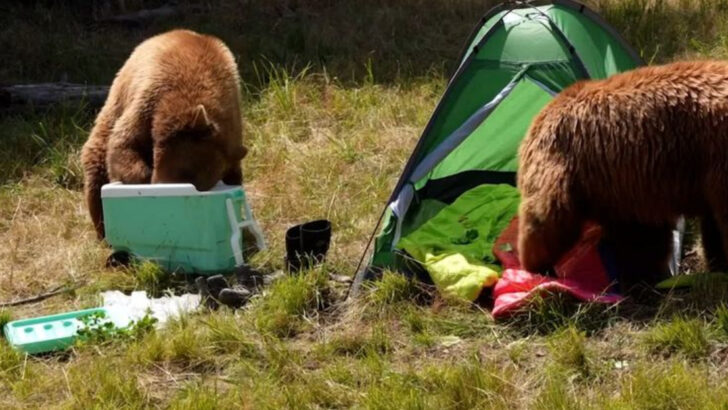You’re not alone out there.
Even when the fire’s out and the tent’s zipped, something is watching.
From raccoons with sticky paws to bears with an excellent sense of smell, campsites are like all-you-can-eat buffets to the animal kingdom.
And while you’re roasting marshmallows and telling ghost stories, they’re planning their entrance—quietly, cleverly, and often hilariously.
You’d be amazed how many animals sneak in the second you turn your back.
Some come for leftovers.
Some come for fun.
A few come just to cause chaos.
Before your next camping trip, meet the 13 wild visitors that have zero respect for your boundaries—or your snacks.
Raccoon

With dexterous paws and a masked face, raccoons are the bandits of the campground. These nocturnal creatures are often found rifling through coolers and trash bags, in search of their next meal.
Known for their intelligence and curiosity, raccoons are not easily deterred. Secure your food properly, or these furry intruders will help themselves to your snacks.
Fun fact: Raccoons can remember tasks for up to three years, making them persistent visitors.
Squirrel

Squirrels, with their twitchy tails and energetic jumps, bring a playful chaos to campsites. Constantly foraging, they might just raid your supplies for nuts and seeds.
They are agile climbers, often seen darting between branches and scampering up tent poles. Their antics can be quite entertaining.
Did you know? Squirrels can leap distances ten times their body length, making them nature’s little acrobats.
Bear

Majestic yet imposing, bears are the heavyweight contenders of campsite visitors. Attracted to the smell of food, they have a powerful sense of smell that guides them.
To keep these mighty creatures at bay, store food in bear-resistant containers and keep your campsite clean. Encountering a bear can be thrilling but potentially dangerous.
Bears primarily rely on their strong olfactory senses to locate food, often roaming miles in search of nourishment.
Fox

Foxes, with their bushy tails and keen eyes, often slip into camps unnoticed. These cunning creatures might be drawn by the smell of your campfire cooking.
Their curiosity makes them bold explorers of your campsite, though they usually prefer to observe from a distance. Foxes are known for their adaptability and intelligence.
Interesting tidbit: Foxes use a variety of vocalizations to communicate, including a distinctive ‘yip.’
Deer
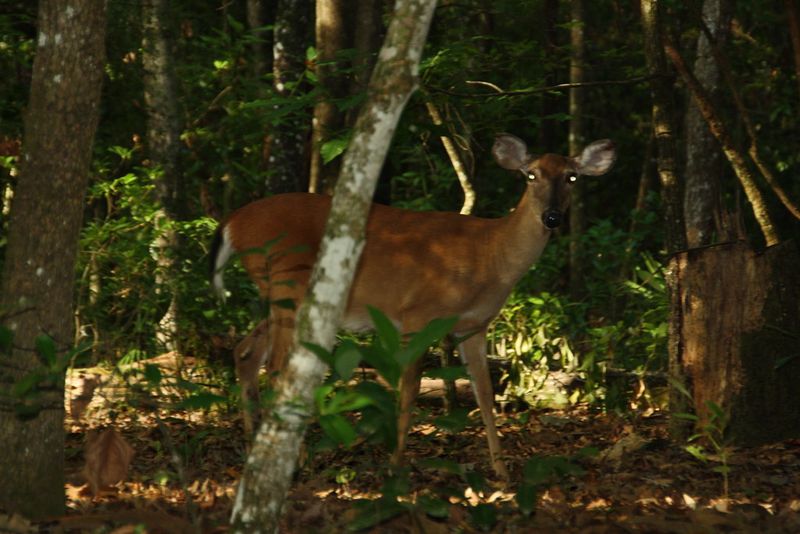
Graceful and serene, deer bring a touch of elegance to any campsite they visit. These herbivores are often seen grazing nearby, drawn by the scent of fresh grass.
Deer are generally shy and will keep their distance, offering a peaceful viewing experience for campers. Their presence is often a highlight of any outdoor adventure.
Did you know? A deer’s antlers can grow up to an inch per day during the peak season.
Skunk
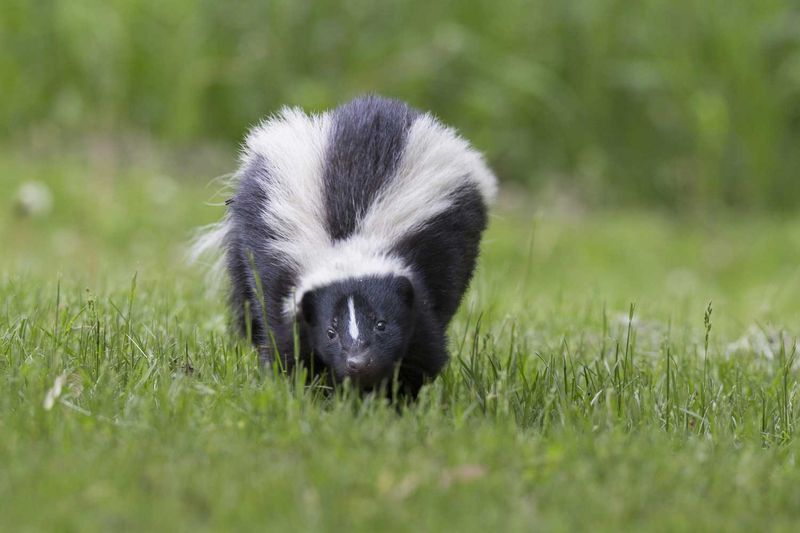
Skunks, infamous for their potent spray, are nocturnal wanderers of campsites. Their distinctive black and white fur warns of their defensive capabilities.
Though often misunderstood, skunks are generally non-aggressive and will only spray if threatened. Keeping a respectful distance is key.
Trivia: Skunks can accurately spray their musk up to ten feet, making them formidable despite their size.
Owl
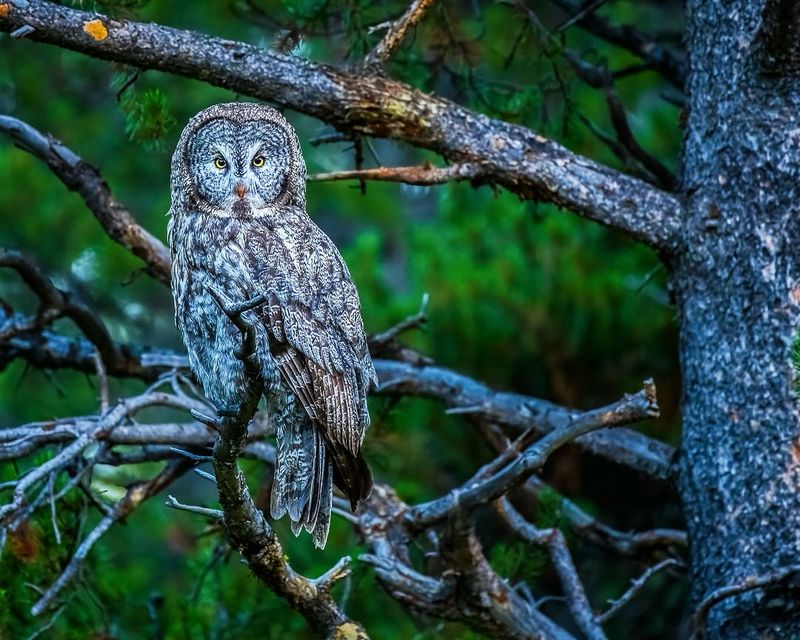
Owls, the silent sentinels of the night, add a mystical charm to any campsite. Their haunting hoots echo through the forest, signaling their presence.
These birds of prey are adept hunters, using their sharp talons and keen eyesight to catch small animals. Owls are often seen perched high in trees, quietly observing.
Fact: Owls can rotate their heads up to 270 degrees, providing them an unparalleled field of vision.
Mouse
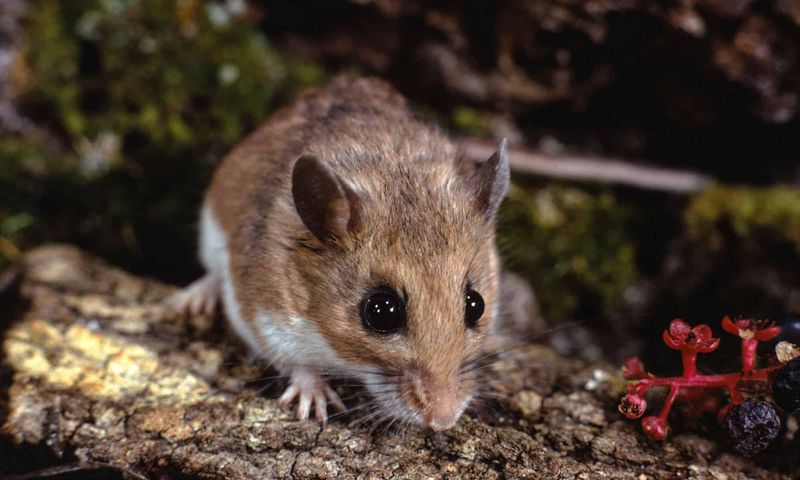
Tiny yet tenacious, mice are the uninvited guests that leave little trace other than nibbled food. Their small size allows them to sneak in and out of campsites easily.
Mice are opportunistic feeders, often scavenging whatever they can find. Be sure to store food securely to prevent a miniature feast.
Curiosity snip: A mouse’s teeth never stop growing, which is why they constantly gnaw to keep them in check.
Wild Boar
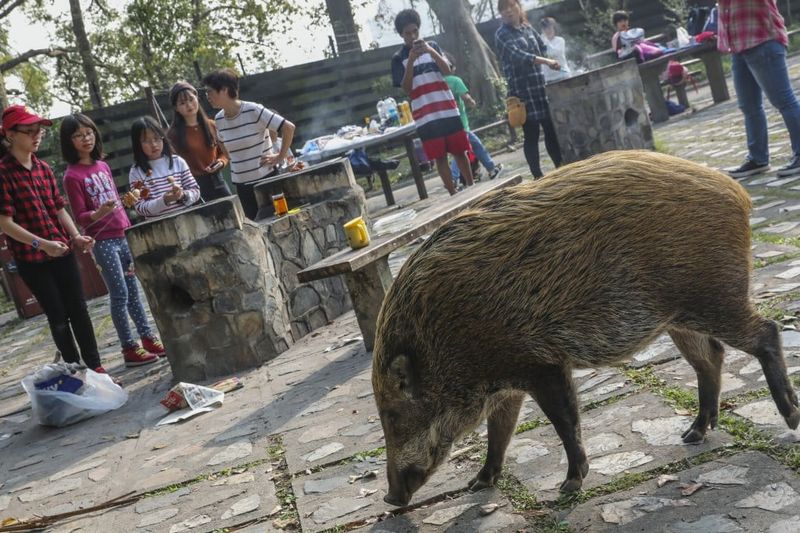
With their rugged appearance and formidable tusks, wild boars are resilient visitors to campsites. They root through the underbrush, searching for food.
Their presence is unmistakable, as they can be quite destructive in their foraging. Wild boars are strong and determined, often traveling in groups.
Factoid: Wild boars have been known to eat almost anything, making them true omnivores of the wild.
Porcupine
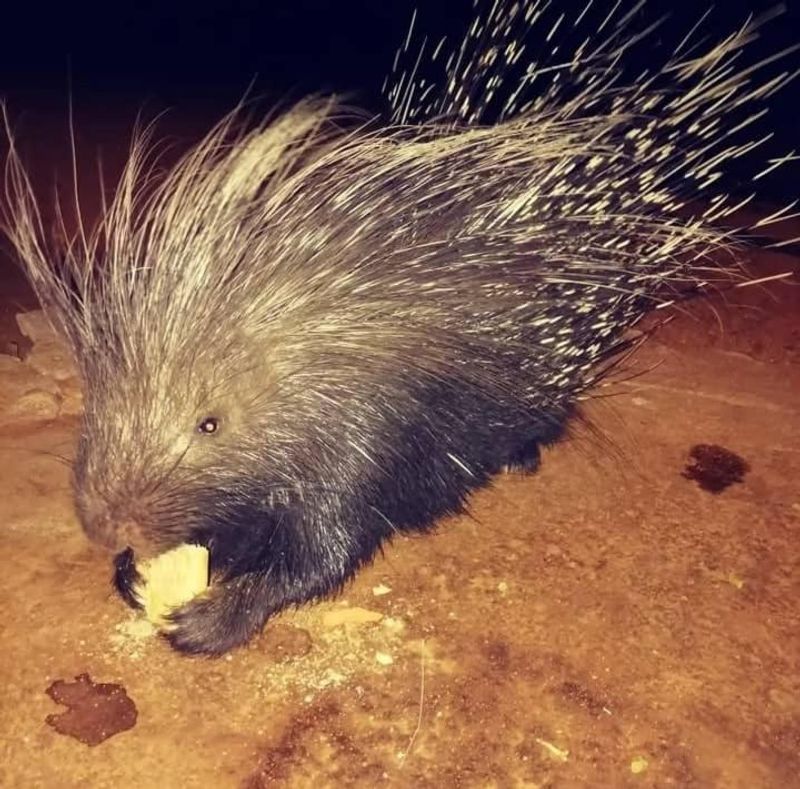
Porcupines, with their quilled armor, are unique visitors to campsites. Their slow, deliberate movements contrast with the sharpness of their quills.
These herbivores feed on a variety of vegetation, often leaving telltale signs of their visit. Despite their formidable defenses, porcupines are generally harmless unless provoked.
Quill fact: A porcupine can have over 30,000 quills, each ready to detach when threatened.
Raven
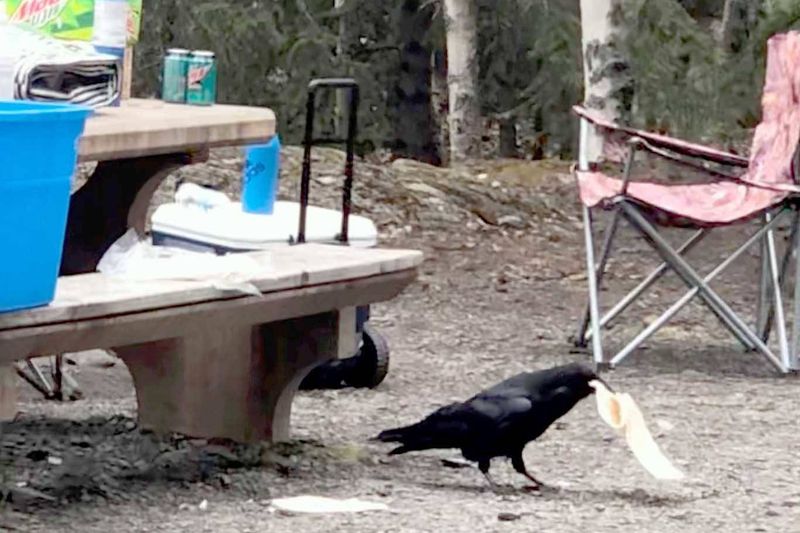
Ravens, with their glossy black feathers and intelligent gaze, are often seen as omen-bearers. They are clever scavengers, drawn to the promise of food.
Their fascinating vocal abilities allow them to mimic sounds, adding a mysterious soundtrack to your camping experience. Ravens are known to be problem solvers.
Insightful note: Ravens can remember individual human faces, a testament to their impressive memory.
Chipmunk
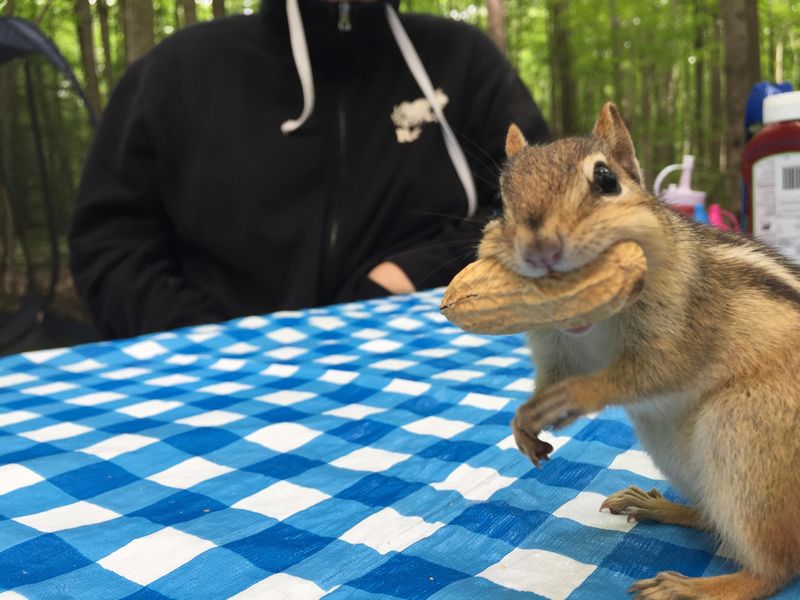
Chipmunks, the pint-sized foragers, dart around campsites with boundless energy. Their striped backs and cheek pouches make them instantly recognizable.
Always on the move, they scurry about collecting food to store for winter. These tiny creatures bring a lively energy to the campsite.
Did you know? Chipmunks can gather up to 165 acorns in a single day, exemplifying their industrious nature.
Coyote
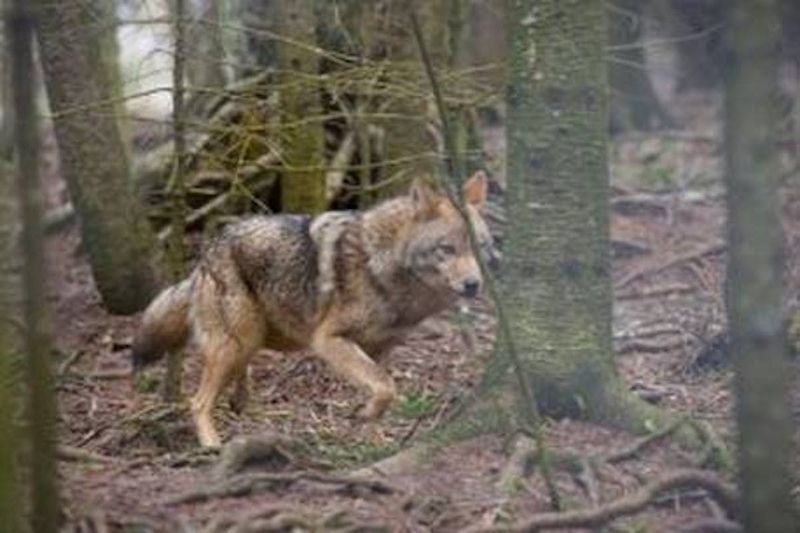
Coyotes, the wily wanderers, are known for their adaptability and nocturnal serenades. Their howls can be both eerie and enthralling, echoing through the woods.
These cunning canines are often drawn to campsites by the smell of food, though they are typically elusive and avoid human contact.
Wild fact: Coyotes can run up to 40 miles per hour, showcasing their speed and agility in the wild.

